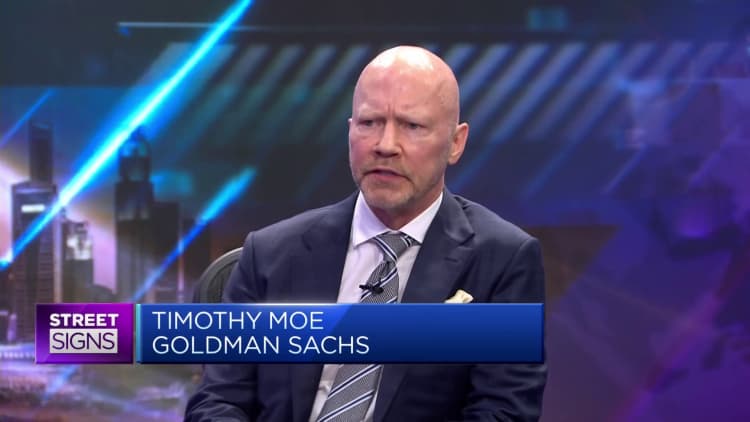[ad_1]
Bank of China is one of the major state-owned banks in China. Pictured here is a branch in Shanghai on March 27, 2023.
Bloomberg | Bloomberg | Getty Images
BEIJING — China’s largest banks cut interest rates for savers on Thursday in a bid to boost growth in an economy where consumption has been slow to recover.
The country’s six state-owned commercial banks’ websites all showed updated yuan-denominated demand deposit interest rates of 0.2%, down from 0.25% last year, according to CNBC checks. Demand deposits allow withdrawals at any time.
The banks cut rates for other deposit products, including reducing the interest rate for five-year time deposits to 2.5% from 2.65%, according to their websites. The state-run Securities Times reported the deposit rate cuts in the Thursday edition of the newspaper.
Those cuts help improve banks’ profitability, and set the stage for the People’s Bank of China to reduce other interest rates, Nomura analysts said.

“We believe the cut in banks’ deposit rates sends a strong signal that the PBOC is paving the way for a cut in benchmark lending rates (MLF) to guide down LPR,” Nomura’s chief China Economist Ting Lu and a team said in a report.
The medium-lending facility interest rate is due out June 15, while the loan prime rate is scheduled for release on June 20.
The more important issue is to bring unemployment rate down. Households with stronger confidence in their jobs would spend more.
Zhiwei Zhang
Pinpoint Asset Management, chief economist
“This new round of deposit rate cuts, as well as rapidly worsening exports, broadening property distress, ongoing disinflation, and a likely Fed pause, raise our conviction of this call on rate cuts,” the analysts said, noting they have been calling for a 10-basis-point cut to the MLF and LPR interest rates since mid-May.
The PBOC has not changed the two rates for nine months. The MLF’s one-year interest rate was 2.75% in May, while the one-year LPR was 3.65% and the five-year LPR was 4.3%.
China has kept its interest rates low, in contrast to the U.S. and other major countries that have aggressively raised rates to curb inflation.
Impact on consumption
Lower interest rates give businesses more incentive to borrow. Cutting deposit rates makes it more expensive for people to keep their money in the bank, and theoretically gives them more incentive to spend.
In the first quarter, 58% of household depositors said they would prefer to save rather than spend or invest, according to a PBOC survey. That was the lowest level in a year.
However, it’s not a given that lower deposit rates will translate immediately into greater spending.
The cuts are “positive on the margin but unlikely to be a significant boost for household spending,” Zhiwei Zhang, president and chief economist at Pinpoint Asset Management, said in an email.
“The more important issue is to bring unemployment rate down. Households with stronger confidence in their jobs would spend more,” he said.
Youth unemployment hit a record high in April at more than 20%. China is set to release retail sales and unemployment data for May on June 15.
[ad_2]

